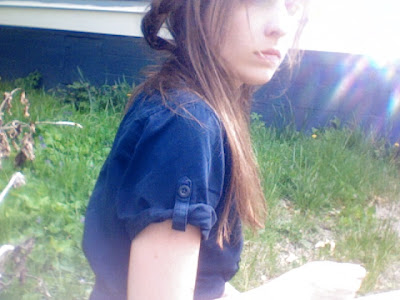What the End Is For
[Grand Forks, North Dakota]
A boy just like you took me out to see them,
the five hundred B-52’s on alert on the runway,
fully loaded fully manned pointed in all the directions,
running every minute
of every day.
They sound like a sickness of the inner ear,
where the heard foams up into the noise of listening,
where the listening arrives without being extinguished.
The huge hum soaks up into the dusk.
The minutes spring open. Six is too many.
From where we watch,
from where even watching is an anachronism,
from the 23rd of March from an open meadow,
the concertina wire in its double helix
designed to tighten round a body if it turns
is the last path the sun can find to take out,
each barb flaring gold like a braille being read,
then off with its knowledge and the sun
is gone....
That’s when the lights on all the extremities, like an outline, like a dress,
become loud in the story,
and a dark I have not seen before
sinks in to hold them one
by one.
Strange plot made to hold so many inexhaustible
screams.
Have you ever heard in a crowd mutterings of
blame
that will not modulate that will not rise?
He tells me, your stand-in, they stair-step up.
He touches me to have me look more deeply
in
to where for just a moment longer
color still lives:
the belly white so that it looks like sky, the top
some kind of brown, some soil—How does it look
from up there now
this meadow we lie on our bellies in, this field Iconography
tells me stands for sadness
because the wind can move through it uninterrupted?
What is it the wind
would have wanted to find and didn’t
leafing down through this endless admiration unbroken
because we’re too low for it
to find us?
Are you still there for me now in that dark
we stood in for hours
letting it sweep as far as it could down over us
unwilling to move, irreconcilable? What he
wants to tell me,
his whisper more like a scream
over this eternity of engines never not running,
is everything: how the crews assigned to each plane
for a week at a time, the seven boys, must live
inseparable,
how they stay together for life,
how the wings are given a life of
seven feet of play,
how they drop practice bombs called shapes over Nevada,
how the measures for counterattack in air
have changed and we
now forego firepower for jamming, for the throwing
of false signals. The meadow, the meadow hums, love, with the planes,
as if every last blade of grass were wholly possessed
by this practice, wholly prepared. The last time I saw you,
we stood facing each other as dusk came on.
I leaned against the refrigerator, you leaned against the door.
The picture window behind you was slowly extinguished,
the tree went out, the two birdfeeders, the metal braces on them.
The light itself took a long time,
bits in puddles stuck like the useless
splinters of memory, the chips
of history, hopes, laws handed down. Here, hold these he says, these
grasses these
torn pods, he says, smiling over the noise another noise, take these
he says, my hands wrong for
the purpose, here,
not-visible-from-the-sky, prepare yourself with these, boy and
bouquet of
thistleweed and wort and william and
timothy. We stood there. Your face went out a long time
before the rest of it. Can’t see you anymore I said. Nor I,
you, whatever you still were
replied.
When I asked you to hold me you refused.
When I asked you to cross the six feet of room to hold me
you refused. Until I
couldn’t rise out of the patience either any longer
to make us
take possession.
Until we were what we must have wanted to be:
shapes the shapelessness was taking back.
Why should I lean out?
Why should I move?
When the Maenads tear Orpheus limb from limb,
they throw his head
out into the river.
Unbodied it sings
all the way downstream, all the way to the single ocean,
head floating in current downriver singing,
until the sound of the cataracts grows,
until the sound of the open ocean grows and the voice.


Comments